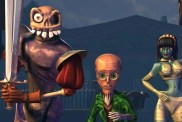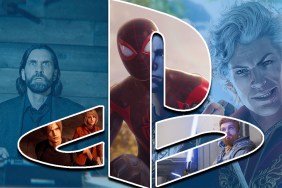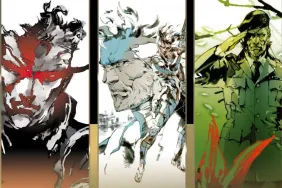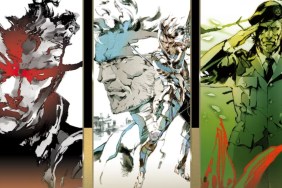Every once in a while, the world is subjected to a video game movie. Assassin’s Creed, Agent 47: Hitman, and Tomb Raider are only a few of the most recent examples, with plenty of titles like Rampage and Five Nights at Freddy’s on the horizon. With each film it becomes more clear that video games simply aren’t made for the silver screen, likely due to their interactive nature and length. (I’d be genuinely amazed if Jordan Vogt-Rogers, as talented as he is, was able to adapt the story of Metal Gear Solid into a two hour film in a way that feels natural). In my experience, these complications make movie adaptations daunting and seemingly impossible, which is why I think video games should focus on novel adaptations instead.
When I was thirteen, I wasn’t allowed to play Mature games. My parents followed the ESRB guidelines rather strictly, which meant it would be a few years before I could get my hands on Metal Gear Solid. Like a grounded kid stuck indoors on a beautiful day, I longingly stared out the proverbial window at the Metal Gear Solid series, yearning to understand the story of Solid Snake. I knew the series had cyborg ninjas and big robots, which was more than enough to intrigue me, but alas, my parents wouldn’t budge. In retrospect I have a great deal of respect for their decision, but at the time I was understandably frustrated.
So I did what any manipulative little trickster would do: I asked my parents if I could get a book. They happily obliged and didn’t recognize my chosen book as the novelization of Metal Gear Solid 2: Sons of Liberty. If I couldn’t experience the story in its native form, I would experience it in any other way available. So with not a twinge of guilt, I started reading Metal Gear Solid 2. The story unfolds as it does in the game, but with more insight into Raiden’s thoughts throughout the Big Shell incident. This probably doesn’t sound like anything spectacular, but experiencing Sons of Liberty in novel form gave me a unique perspective on the game, one that elevated my opinion of the game itself.

There’s a painfully obvious twist in Sons of Liberty, one that anyone familiar with the game will immediately recognize, and one that is far more surprising in book form. Near the beginning of the game you meet Iroquois Pliskin, a marine operative who looks and sounds like Solid Snake, but definitely isn’t Solid Snake. When Pliskin yells out, “I’m Solid Snake,” partway through the game, it’s meant to be a huge twist. But it isn’t, because literally everybody could tell he was Solid Snake. Everybody, that is, except for me, because I read the book, where Pliskin is simply described as “a man in his late forties or early fifties. Dark hair. Stubble on his face.” Sure, that could apply to Snake, but it could also apply to half of the protagonists in fiction. The lack of visual reference made this a huge twist for me, and that wasn’t the only time where this occurred. The Fatman boss fight is even weirder when you have to fill in the blanks with your imagination, and the entire Arsenal Gear section with the A.I. Colonel? Nothing short of sheer insanity.
Experiencing these events in the game itself years later was like watching the film adaptation of a book, as I got to compare my perception of the game with how it actually looks. As I played through Sons of Liberty I experienced a more fleshed-out world as a result of having read the novel. Alongside the Pliskin twist, I had Raiden’s unsaid thoughts in the back of my mind, and Snake’s perspective as a sort of internal commentary. Reading the book gave me a different outlook on Sons of Liberty, one that made the experience both unique and unforgettable.
I think a lot of games would work well as novelizations, as the medium makes exposition dumps far less awkward and far easier to pull off. When you’re waiting for a cutscene to end, explanations about Nobodies, nanomachines, and politics all feel endless. You just want to play the game, no matter how enjoyable the story is. With a book, you’re already reading. You’re processing information as you read, and you’re not waiting to get to the gameplay. This makes these explanations far more palatable, and thus, far more accessible. While a certain amount of tact would still be required to make some of gaming’s more obscure concepts digestible, it would certainly be preferable to watching twenty minute cutscenes.
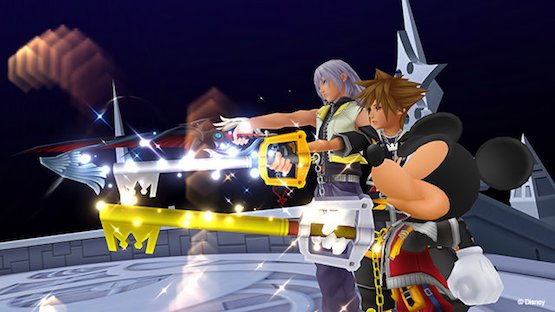
For example, imagine if Kingdom Hearts was properly novelized. I love the series, but having a decent explanation for that abstract mess of a story would no doubt make it easier for people to get into, especially since you wouldn’t need numerous consoles to experience it. The rest of the Metal Gear Solid series could benefit from the same treatment, as consistent book releases spanning the entire series could tie the somewhat disjointed storyline together. Hell, even Telltale games could work as “choose your own adventure” books that, given the extra pages, could flesh out each alternate path.
Books could also use their more flexible length to build upon the already established stories of their source material. For fans of Uncharted and Tomb Raider, novelizations could include background information and lore surrounding the treasures Nate and Laura plunder, while Final Fantasy books could provide readers with a deeper look at each game’s vastly different world and mythology. Novels can inherently provide narratives with much more breathing room than movies can, which would make these books worth checking out for both series fans and newbies alike. Fans get new story details, while non-gamers can still experience these classic stories. It’s a win-win scenario.
To be clear, I’m not claiming that this would work for all video games. Shadow of the Colossus, Journey, and other such games that take full advantage of the medium are best left as games. There’s no way any other form of media could do such unique experiences justice, and I think it’s important to acknowledge and respect that. I do, however, think that novels could build upon existing stories while making them more accessible to gamers and non-gamers alike. Novels could succeed where video game movies have so frequently failed, and I think it’s about time we gave them a shot.
Spencer Legacy is a freelance writer and Reviews Editor at MonsterVine. You can follow him on Twitter.



